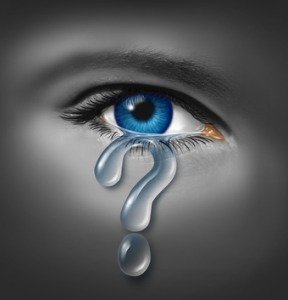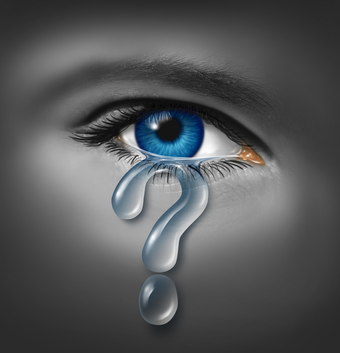
I ran across a report from the National Center for Health Statistics when reading Saving Normal by Allen Frances that had some incredible facts about antidepressant use in the United States. The report said that 11% of Americans 12 years and over take antidepressant medication. Women were 2.5 times as likely to take antidepressants as men. Individuals 40 and over are more likely to take antidepressants than those younger than 40. “Twenty-three percent of women aged 40-59 take antidepressants, more than any other age-sex group.”
When the severity of depressive symptoms was considered, use of antidepressant medication rose as the severity of symptoms increases. This seems logical; the worse your depression is, the more likely you are to try medication. But look at the other end of symptom severity—7.6% of those taking antidepressants have NO REPORTED symptoms of depression. The Data Brief pointed out that this group could include people taking antidepressants for reasons other than depression and those who are being “successfully” treated with antidepressants, and just don’t have any symptoms currently. See the table below.
|
Depressive symptoms |
Percent |
|
Total |
|
|
None |
7.6 |
|
Mild |
19.2 |
|
Moderate |
28.4 |
|
Severe |
33.9 |
|
Males |
|
|
None |
4.4 |
|
Mild |
11.5 |
|
Moderate |
18.6 |
|
Severe |
21.0 |
|
Females |
|
|
None |
10.9 |
|
Mild |
24.6 |
|
Moderate |
34.5 |
|
Severe |
39.9 |
Allen Frances suggested that part of the problem was that drug companies capitalized on the placebo effect, that is: “people getting better because of positive expectations independent of any specific healing effect of the treatment.” Treating the “worried well” expanded the customer pool and guaranteed a pool of satisfied customers. “Placebo responders often become long-term loyalists to medication use even when the medication is perfectly useless.”
The best way to get great results with a pill is to treat people who don’t really need it—the highest placebo response rates occur in those who would get better naturally and on their own.
What’s at stake? The Statistics Portal indicated that the top ten selling antidepressants in 2011-2012 grossed 8.5 billion dollars. Considering that most of the antidepressants are off patent and not as profitable to the drug companies, this is an incredible haul. Another indication of the pervasiveness of antidepressant use in the U.S. is to look at the number of prescriptions written. The top antidepressant drugs in the U.S. based upon the number of dispensed prescriptions in 2011-2012 are given in the following chart, again from The Statistics Portal.
|
Antidepressants |
Prescriptions |
|
Celexa (citalopram hydrobromide) |
39,087,000 |
|
Zoloft (sertaline hydrochloride) |
37,893,000 |
|
Prozac (fluoxetine hydrochloride) |
24,961,000 |
|
Trazadone (trazadone hydrochloride) |
23,449,000 |
|
Cymbalta |
18,468,000 |
|
Lexapro |
16,367,000 |
|
Paxil (paroxetine hydrochloride) |
13,834,000 |
|
Effexor (venlafaxine hydrochloride ER) |
13,679,000 |
|
Wellbutrin (bupropion hydrochloride XL) |
13,365,000 |
|
Elavil (amitriptyline hydrochloride) |
12,880,000 |
Returning to the NCHS Data Brief, once people start taking antidepressants, they tend to continue taking them. Sixty-one percent of Americans taking an antidepressant have been taking it longer than 2 years; 13.6% have been taking them ten or more years. The problem is that the widespread use of antidepressants and their long-term use may be actually causing depression.
Robert Whitaker commented in Anatomy of an Epidemic that prior to the appearance of antidepressant drugs, depression was seen as a rare problem with typically good outcomes over time. Now the NIMH says that an episode of major depression “can occur only once in a person’s lifetime, but more often, a person has several episodes.” In 2012, an estimated 16 million adults and 2.2 million adolescents had at least one depressive episode in the past year.
Whitaker noted how Italian psychiatrist, Giovanni Fava began in 1994 to look at the changing face of depression. In that article, Fava raised the possibility that “long-term use of antidepressant drugs may also increase the biochemical vulnerability to depression and decrease its likelihood of subsequent response to pharmacological treatment.” In a 2003 article, Fava suggested that antidepressants may, in some cases, actually cause depression. “Whether one treats a depressed patient for 3 months or 3 years, it does not matter when one stops the drugs. A statistical trend suggested that the longer the drug treatment, the higher the likelihood of relapse.”
In a 2014 article, “Rational Use of Antidepressant Drugs,” Fava said that rational use of antidepressant drugs should consider all the potential benefits and harms. They should only be used with the most severe and persistent cases of depression. They should be used for the shortest possible duration. Using antidepressants to treat anxiety disorders should be reduced, unless a major depressive disorder is present or other treatments have been ineffective.
These suggestions may seem to be radically different from current guidelines such as those of the American Psychiatric Association, but they reflect the weighing of risk, responsiveness and vulnerability that should be applied to the use of AD [antidepressant drugs] in each individual case.
To use or not to use antidepressants, that is the question. There is serious potential harm that may occur with their use. And sometimes they can literally save a life. What seems to be clear is that current guidelines for their use can, in the long run, worsen the problem they were originally supposed to “treat.” Along with the above suggestions for the rational use of antidepressants given by Fava, I think there needs to be a change in how we think about psychiatric drugs. The current disease-centered model of drug action needs to be replaced by a drug-centered model of drug action. You can find more on this distinction in the writings of Joanna Moncrieff, such as The Myth of the Chemical Cure and my article, “A Drug is a Drug is a Drug.” Also see two longer articles on antidepressants available in the Counseling Issues section under the “Resources” link of this site.





